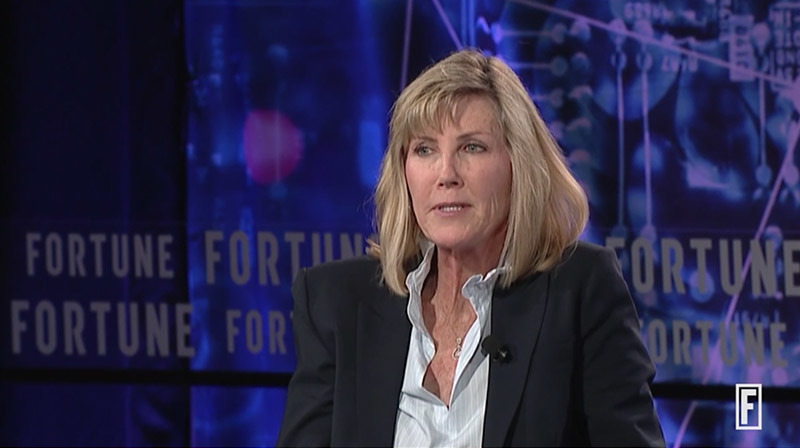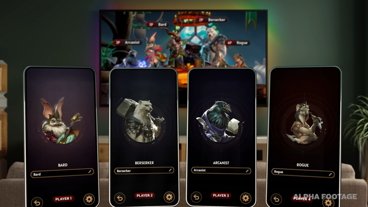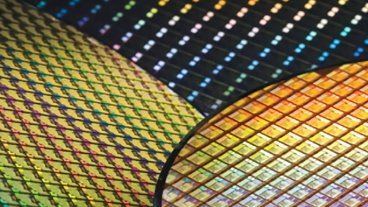Apple VP Jennifer Bailey, the executive in charge of Apple Pay, details the genesis of the mobile payments solution and details its ongoing success in a new interview.
Speaking with Fortune executive editor Adam Lashinsky at the publication's Brainstorm Reinvent conference in Chicago on Tuesday, Bailey said Apple did not seek to disrupt the payments industry with Apple Pay. Instead, when the company launched the product four years ago, it wanted to introduce an attractive consumer solution that worked in tandem with established payment methods.
"When we thought about Apple Pay, we thought, there are a lot of payments out there that our customers already love and trust," Bailey said. "We don't sit around and think about, what industry should we disrupt?' — we think about, what great customer experiences can we develop?'"
Apple typically finds huge success in the role of disruptor — see iPhone, Mac and iTunes — but the company's typical approach was not a good fit when it came to the entrenched payments market. Of particular concern was government oversight, according to Bailey.
Becoming a credit card replacement would make Apple a de facto financial institution, thus requiring a bank charter and, with it, strict regulation. Bailey was adamant that Apple has no desire to be regulated.
Indeed, Apple is looking to expand beyond payments and into what Bailey refers to as access. The company will next week roll out student ID cards for Duke University, the University of Oklahoma, and the University of Alabama in a solution that combines payments with NFC-based building access. Students with compatible iPhone and Apple Watch devices will be able to provision their ID cards in Wallet to enter dorms, pay for laundry and perform other campus functions.
Apple appears to be pushing the access angle as a major function of Wallet and supporting NFC-capable devices. Bailey mentioned Apple's work to facilitate adoption in corporate settings, as well as by hotels. Apple itself uses on-device credentials to gate access at its Apple Park campus — a technology showed off at WWDC this year.
"It's a tremendous new area for us to focus on, which is really access," Bailey said.
Both Starwood Hotels and Hilton Worldwide rolled out iPhone and Apple Watch-compatible hotel key cards in 2014, though the implementations were based on the Bluetooth Low Energy protocol, not NFC.
Bailey took today's interview as an opportunity to tout recent Apple Pay statistics, saying the payments system should be supported by 60 percent of U.S. retail locations by the end of the year. Further, Apple Wallet is live in 24 countries, unsurprisingly experiencing faster growth outside of Apple's domestic market. The latter metric is likely attributed to consumer familiarity with pre-existing touchless technologies, especially in Asia.
As for transit, another key Wallet feature, iPhone and Apple Watch owners can use their devices to ride public transport systems in 12 cities worldwide. Of those, Tokyo, Beijing, and Shanghai integrate closed loop technology, while London and Moscow rely on open loop technology, the report said. Bailey said the product is seeing rapid high penetration in Tokyo, where Apple Pay launched with support for JR East's Suica mobile transit card system in 2016.
Finally, Bailey said that while Apple makes money off Apple Pay transactions, the new features coming to Wallet are designed to keep users loyal to Apple platforms.
 Mikey Campbell
Mikey Campbell







-m.jpg)






 Bon Adamson
Bon Adamson
 Marko Zivkovic
Marko Zivkovic
 Wesley Hilliard
Wesley Hilliard
 Amber Neely
Amber Neely

 Malcolm Owen
Malcolm Owen
 William Gallagher
William Gallagher





-m.jpg)



24 Comments
Well most disruptions don't start off with people trying to actually disrupt an industry, they just try to get a niche and the rest is history. However in this case, Apple being as big as it is, if they said that they were trying, they would have regulatory boards in America and Europe all over them. For Apple to disrupt the credit card industry, imo, they would have to go after the banks, but banks now are much bigger and more powerful than they used to be. I'm not saying it's impossible but it's would be a pretty hard task to accomplish.
Please explain what “open loop” technology for London tube is - and it’s (dis)advantage is.
My only concern about the student IDs via NFC if they will work when the device has no battery power. While that's certainly handy, I don't think it's safe that someone could lose or have an iPhone stolen and then when the power runs out it will still allow access to dorm by pressing the Sleep/Wake button.
I think this will answer everything for you:
I believe Apple choose the best solution and I'm happy to say it's the solution I proffered years before Apple Pay was ever introduced. My only wish is that the extra security for using Apple Pay would result in lower transaction fees for retailers which would help them advertise this option more, and for mom-and-pop shops with discreet card readers that have mostly supported Apple Pay (and all other NFC-based scanners to have the company that supplies the device notify them that they can take these *Pay payments.
If anyone wants to help with increasing the saturation in your area you can order—free of charge—register and door stickers from Apple that you can give to those businesses when you come across them. I don't do it for Apple; I do it for myself, because the sooner I can reach a tipping point where I can more freely not carry my physical cards on me the more convenient my life will be.
I guess she means to say that ApplePay is targeted specifically at the smaller transactions - but not afraid to scale up to the market of larger transactions (coincidentally pulverizing the credit card market)
To be honest, it is clear Apple didn’t set out to disrupt the industry. That is why adoption has been slower and rolled out as slowly as it has. Heck in my heavily regulated country, which has resulted in a “big four” banks, the oligarchs are so wedded to their own solutions they believe they can bend Apple to their will, and only one of them has Apple Pay.
Apple could have done it differently. To avoid regulation of Apple as a whole of course, it could have just set up its own subsidiary competitor to banks and credit card companies. It still could of course. It would be a lot of work, and it might be easier just to buy a smallish global bank. The mere threat though could encourage recalcitrants to get on board with Apple Pay.
This interview, of course, was most definitely not intended as a possible threat or reminder that it could do just that.